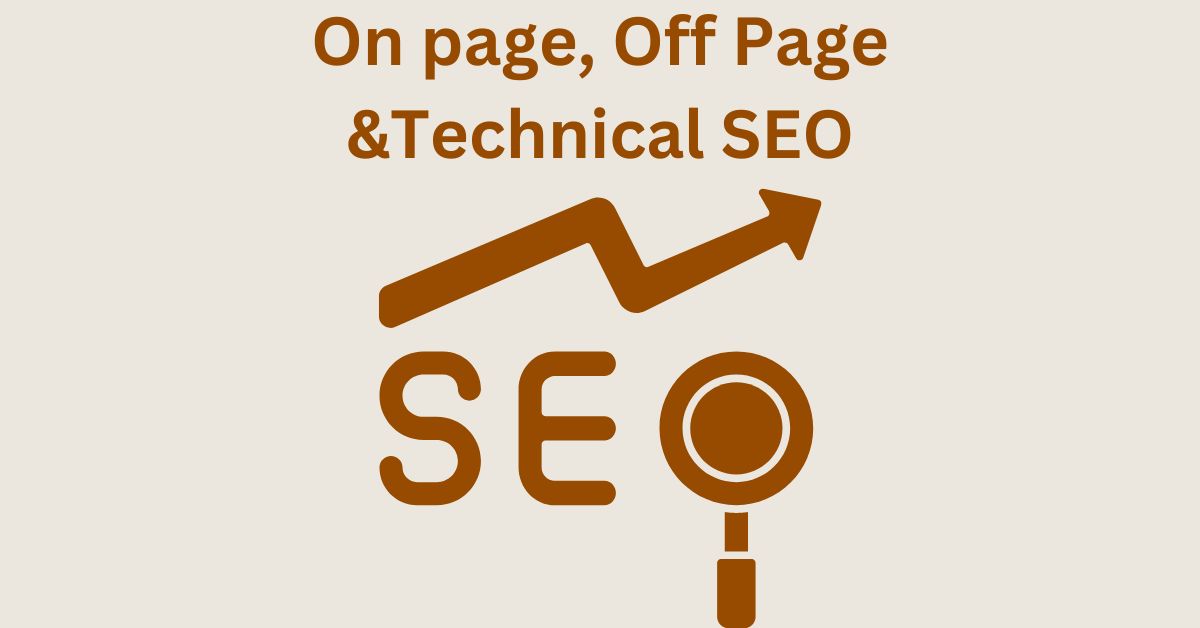Difference Between On Page, Off Page and Technical SEO
Estimated reading time: 4 minutes
Last updated on March 26th, 2024 at 07:08 am
Are you looking for “On Page vs Off Page vs Technical SEO”?
Imagine your website is a car.
On-page SEO is like a shiny paint job, off-page SEO is like getting positive reviews from other drivers, and technical SEO is like making sure the engine runs smoothly.
Without these, your car won’t perform well or attract attention.
All three aspects are vital for a website’s success.
In fact, businesses that invest in a balanced SEO strategy are 2.2 times more likely to grow than those that don’t focus on SEO.
What Exactly is SEO?
Think of SEO (Search Engine Optimization) as the secret sauce to make your website stand out.
It’s like giving your site a map and a spotlight so search engines, like Google, can find and show it to people.
Did you know that 75% of users never scroll past the first page of search results?
SEO helps your site land on that coveted first page.
On Page vs Off Page vs Technical SEO
On-Page SEO
Think of on-page SEO as your website’s first impression.
When you use the right keywords, create catchy titles, and have easy-to-read content, it’s like dressing up your site for success.
Did you know that pages with a clear call-to-action have an average conversion rate of 13.5%?
On-page SEO helps guide visitors to take the actions you want, whether it’s buying a product or subscribing to your newsletter.
Off-Page SEO
Imagine your website is a popular hangout spot.
Off-page SEO is like making your hangout famous by getting others to talk about it.
When reputable websites link to yours (like friends recommending your hangout), it builds trust.
This trust factor helps your site climb up the Google ranks.
In fact, websites with strong backlinks can see up to a 50% increase in organic traffic.
Technical SEO
Picture your website as a high-tech gadget.
Technical SEO is like fine-tuning and maintaining all the gears and circuits inside to make sure everything runs smoothly.
When your site is technically sound, it loads faster, works well on different devices, and is easy for search engines to understand.
Did you know that 40% of visitors will leave a website if it takes more than 3 seconds to load?
Technical SEO ensures your site not only looks good but performs well too.
Key Differences Between On-Page, Off-Page, and Technical SEO
1. Focus
On-Page SEO: Concentrates on optimizing individual web pages for search engines and users.
It involves content, keywords, and page structure.
Off-Page SEO: Deals with activities outside your website to enhance its reputation, such as building quality backlinks and social media engagement.
Technical SEO: This involves optimizing the technical aspects of your website to improve its performance and search engine readability.
2. Examples
On-Page SEO: Keyword optimization, content creation, meta tags, and URL structure.
Off-Page SEO: Building backlinks, social media marketing, and influencer collaborations.
Technical SEO: Site speed optimization, mobile responsiveness, and XML sitemaps.
3. Visibility
On-Page SEO: Directly influences how a specific page ranks in search engine results.
Off-Page SEO: Enhances the overall authority and trustworthiness of your website, impacting its rankings.
Technical SEO: Ensures search engines can crawl and index your site efficiently, affecting its overall visibility.
Wrapping Up – On Page vs Off Page vs Technical SEO
In Short, On-Page SEO is like the makeup of a webpage.
It involves tweaking the content and behind-the-scenes code to make sure it’s attractive to both users and search engines.
Off-Page SEO is about making friends on the internet.
It includes building relationships with other websites through things like links and social media, which can help boost a site’s reputation.
Technical SEO is like the engine under the hood.
It deals with the technical aspects of a website, making sure it’s easy for search engines to understand and navigate.
